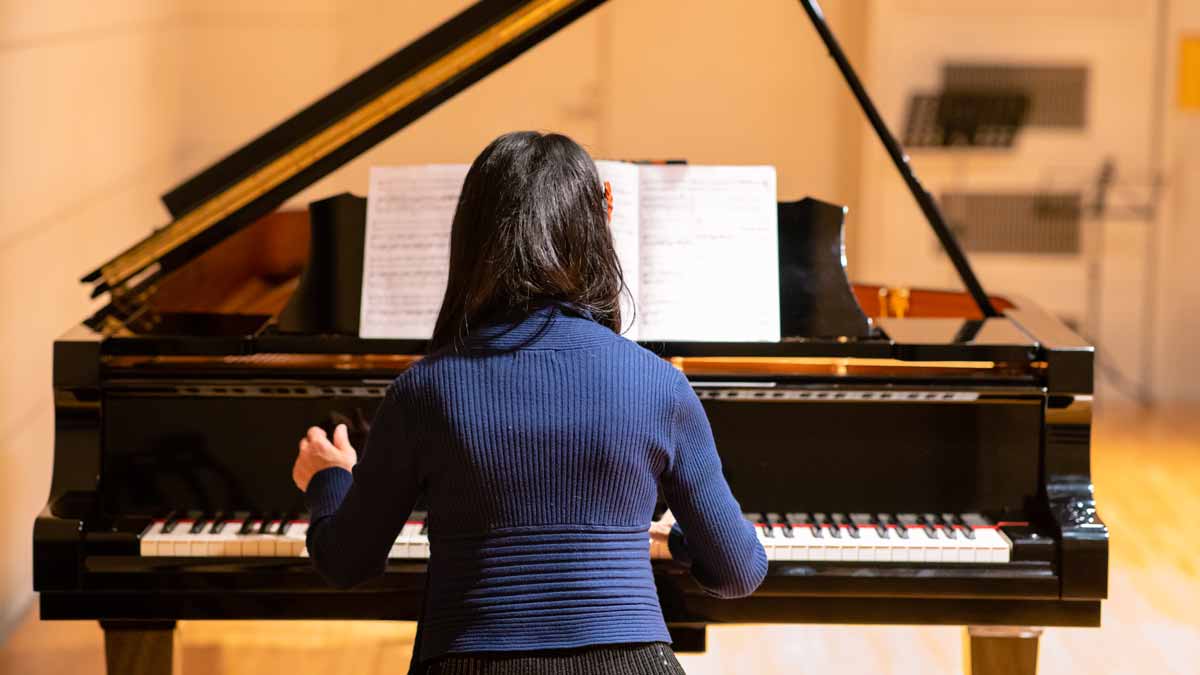
My next studio recital will be in a couple of weeks. Recitals are an important goal for progress! I try to have recitals 3 or 4 times a year. In this period of COVID and its variants, I still opt for in-person recitals, but I have ultra small groups. For example, I will only have 2 or 3 students playing in one program. Their parents and siblings, maybe grandparents, will come and that is still less than 20 people in the audience. Everyone can spread out and it is all over in 10-15 minutes. That group leaves the recital space, and another group comes in. Since there is no reception, I make up goodie bags for all the performers and their siblings, and they are really happy with that.
This is what I have my students play at one of my studio recitals:
- We start out with a duet.
- A scale, and if appropriate, an arpeggio.
- Solo piece from memory.
To work with my 7-17 year olds getting all of that performance ready is A LOT of work!
Somewhere along the line, some parents feel that they need to hand over “ownership” of their child’s practice time to their child and the parents just sit by as supportive individuals. That’s all well and good if your child is 11 or older, but not so productive if they are younger than that.
I refer you to a wonderful book for parents of children who are studying an instrument:
https://www.sharmusic.com/Accessories/Books-DVDs/Helping-Parents-Practice-by-Edmund-Sprunger.axd
Even though it was written with Suzuki violin parents in mind, that doesn’t matter at all. The Suzuki violin method is only successful because of the parental involvement.
I wrote one of my parents explaining that I really needed her help with her 8 year old child
Here is my email:
For (name) to be truly ready and confident for March 13, you need to sit with her and help her during her practice time. There are way too many details for a 3rd grader to take it all on herself. In that way, it is harder than school assignments. The reason is, that because we are dealing with an art form, it really cannot be quantified.
That said, a young student starts to learn the basic foundation:
- hand position
- the way the hand and the arm move together
- Dynamics
- Slurs
- Counting (incorporating the different types of notes and rests….rather complicated if you think about it)
- Tempo
- In some instances, memorization of the notes plus all of the above
- Legato playing
- Staccato playing
That list is just the beginning. As (name) progresses, there will be more details to be aware of. As you can see yourself through your own piano studies with me, it is not an easy task to remember all of that at the same time. That’s why an 8 year old, no matter how brilliant, needs practice help.
ALL my students, through 5th grade, have a parent help them. I find that around 5th grade, little by little, students begin to work more on their own. Now I know that (name) is very responsible and practices on her own, but the issue is that because all these things are impossible to remember at once unless prompted, lessons can be frustrating by hearing the same things all the time and (name) can become easily frustrated by being shocked that something isn’t perfect or that she isn’t able to perfect it right away. That tells me that she can go a bit further in her understanding or repetition in her practice so that she has the foundation to not be toppled over, but an 8 year old cannot do that by themselves.
I have noticed that when a parent helps their child, the progress is fast. (Name) has made progress because she is so capable, but it is not realistic to expect her to prepare for a performance all by herself, or with just a bit of input from you.
The fun and pleasure one gets from playing an instrument, is working to create something beautiful and being able to share it successfully, on any level. The feeling of self satisfaction and happiness that results is immeasurable.
So there it is. It’s all about progress and achievement of success that is appropriate for that child. Let’s not settle for anything less. It is the effort of trying that brings movement, and parental involvement helps them work towards that goal.

